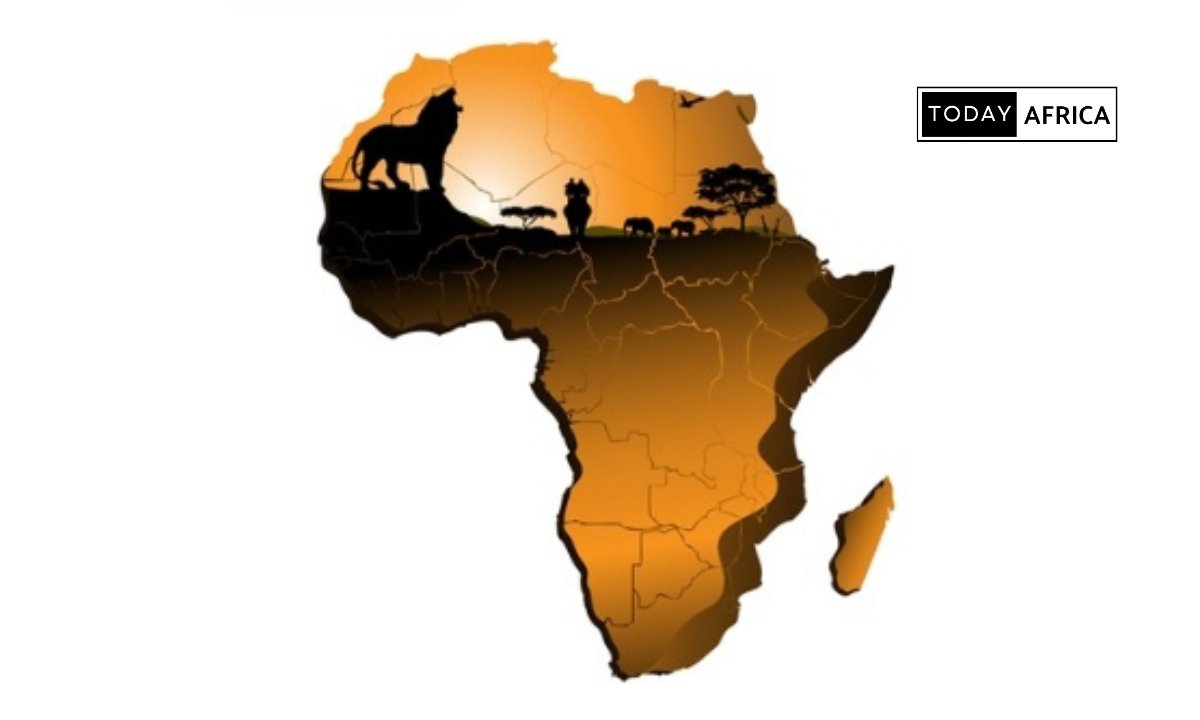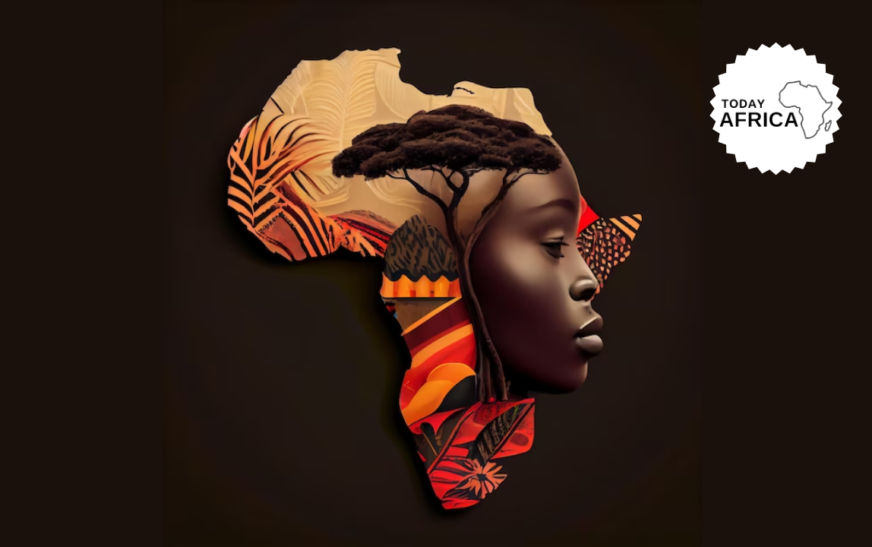In recent years, the African startup ecosystem has exploded onto the global stage.
Investors and media alike are tuning in as young entrepreneurs launch innovations—from mobile payment platforms to healthtech apps—that address pressing local challenges.
By the end of the first half of 2025, African startups had already raised over $1 billion in just the first five months of the year, representing a 40% increase from the same period in 2024.
This funding surge is drawing major international players (from SoftBank and Tiger Global to Google and Stripe) and sparking media buzz worldwide.
In this post, we’ll explore why African startups are gaining global attention, what’s driving their growth, and where things may go next.
Booming Investment in African Startups
Record-breaking funding levels
After a “funding winter” in 2023–24, 2025 saw African startups bounce back in a big way. By May 2025, total funding on the continent exceeded $1 billion – and this was just H1.
According to data firm Africa: The Big Deal, that $1B was a 40% increase over H1 2024. Across 2024, startups raised about $2.2 billion, nearly the same as 2023, showing stabilization after earlier declines.
Notably, in Q1 2025 alone, African companies raised $460 million. These totals may seem small next to the $300+ billion flowing into U.S. or Chinese startups, but they mark a dramatic shift for the continent.
International funds are pouring in: a new report shows 73% of Africa’s tech funding comes from outside the continent, with North American investors behind 42% of venture deals.
This influx of capital (and global attention) signals confidence that African startups can deliver strong returns.
- Foreign capital dominance: In early 2025, about 80% of startup funding came from overseas investors. Veteran firms like Sequoia, SoftBank, and Tiger Global have opened African-specific funds or led mega-rounds, while development finance (AFD, IFC, etc.) and diaspora venture funds are also active.
- Regional concentration: The so-called “Big Four” (Nigeria, Kenya, South Africa, Egypt) still grab most dollars. In Q1 2025, they took 83% of funding, each country raising roughly $100M. But emerging hubs (Ghana, Rwanda, Senegal, Tanzania) are getting more deals, a sign that the startup wave is beginning to spread.
Leading sector: fintech
Fintech remains the king of African startups. Nearly half of all 2025 funding (46% in Q1 2025) went to fintech firms. This makes sense: with hundreds of millions underbanked, Africa leapfrogged traditional banking into mobile money.
Companies like Kenya’s Wave (mobile wallets) and Nigeria’s Moniepoint (digital banking) have seen massive rounds. For example, Moniepoint raised $110M in late 2024 to reach unicorn status.
Global investors are snapping up stakes in these startups because they solve real problems (bill payments, remittances, lending) and serve huge markets.
Other hot sectors include climate/energy tech, logistics, and healthtech. Partech reports that climate/clean-tech startups raised a record $414M in 2024 (nearly one-third of all African tech funding).
Startups like Kenya’s SunCulture (solar irrigation) are drawing climate funds and VC alike. Logistics tech (trucking and delivery) is also growing fast as e-commerce expands.
Overall, as one analysis notes, “Fintech alone drew 60% of tech VC in 2024,” with Healthtech, Agritech, and Education Tech also ramping up.
This diversification shows global investors see opportunity beyond just payments.
- Crypto & AI: While still nascent, African crypto and AI startups (blockchain platforms, AI-based agriculture) are beginning to attract attention too. For instance, several Nigerian and South African AI firms are raising early rounds targeting local needs. (Meta and Google have even run Africa-focused AI challenges.)
Global investors take notice
The funding boom is both a cause and effect of global attention.
High-profile deals have grabbed headlines: SoftBank’s Vision Fund backed Nigeria’s OPay with a $400M round in 2021; Stripe invested $200M in Senegal’s Wave; Uber and Google have pumped money into African fintechs.
TechCrunch reports that startups like Moniepoint and Moove “thrived … drawing attention with notable investments from Uber, Google, and Nubank”.
These big-name co-signals make more investors curious. In fact, one TechInAfrica article notes that African startups attracted over $1B from Jan–May 2025, and 80% of that was international capital.
In short, when global VC heavyweights and corporates write checks, the world pays attention.
Likewise, high-profile exits and unicorns have boosted Africa’s profile. The continent already counts a dozen billion-dollar startups (unicorns) across fintech and software.
Nigeria’s Flutterwave ($3B valuation) and Egypt’s TymeBank ($1.5B) are often cited as proof that African tech can scale big.
Even legacy innovations like Kenya’s mobile-money pioneer M-Pesa (a Vodafone-Safaricom JV) have become global case studies of African tech success.
Together, these stories show that Africa isn’t just a frontier market – it’s producing companies that compete internationally.
See Also: The Role of Women in the African Tech Ecosystem
Success Stories and Unicorns
Fintech
No discussion of African startups is complete without its fintech stars. M-Pesa (launched 2007) showed early on that mobile phones could transform finance. Today, new fintech unicorns multiply.
- Flutterwave (Nigeria) provides payment infrastructure across Africa and raised a $250M round in 2021 at a $3B valuation.
- OPay (Nigeria/China) has a $2B valuation and counts SoftBank among its investors.
- Wave (Senegal) is like a West African PayPal – it raised $200M from Stripe in 2022 to scale mobile money in francophone countries.
- Moniepoint (Nigeria) hit unicorn status in 2024 with a $110M round, and Google’s Africa fund as investor.
These big rounds are not by accident: each company boasts rapid user growth or profitability, as investors emphasize.
- Other fintech hits: Chipper Cash (Pan-Africa remittances) raised over $300M (FTX, Bezos Expeditions among its backers) and is expanding its “no-fee” payment app.
- Andela (global talent marketplace, originally Nigerian/U.S.) raised $200M from SoftBank.
- Interswitch (Nigeria) scaled payments tech, then sold a stake to Visa in 2023 at a $1B+ valuation.
These exits and valuations have inspired confidence that African fintechs can achieve global scale.
Beyond fintech
While fintech steals the limelight, innovators in health, education, agribusiness, and more are also putting Africa on the map.
For example, Nigeria’s Helium Health raised series B funding to digitize medical records. SolarNow (Uganda) and M-KOPA (East Africa) have attracted hundreds of millions to expand pay-as-you-go solar power.
E-commerce platform Jumia (Nigeria) was Africa’s first tech IPO (2019) and remains a symbol of African e-commerce (despite ups and downs).

In agri-tech, startups like Twiga Foods (Kenya food supply chain) and Hello Tractor (Nigeria’s ride-sharing for farm equipment) are scaling up, often with backing from global agri or development funds.
Each success story adds to the continent’s credibility. TechCabal and TechCrunch note that Africa’s leading startups “underscore the continent’s enormous potential” and help shape its tech ecosystem’s reputation.
When African-born products solve problems at scale, global eyes turn to Africa to hunt for the next big thing.
Read Also: How Green Startups are Creating Jobs & Sustainable Growth in Africa
Key Drivers Fueling Growth
Why now? A convergence of factors has propelled African startups to the forefront:
1. Young, digital population
Africa has the world’s fastest-growing and youngest population. The median age is around 19, and over 60% of Africans are under 25. This demographic bulge means a large, tech-savvy customer base. In many African countries, smartphone use and internet access have surged.
Mobile money usage exploded – by 2024 there were 2.1 billion registered mobile-money accounts in Africa (up 14% in a year) with 514 million monthly active users. In short, millions of Africans can pay, shop, and access services on their phones, creating huge opportunity for startups.
2. Solving real challenges
African entrepreneurs often target fundamental local needs. Whether it’s providing affordable loans to unbanked customers, delivering solar power to off-grid villages, or digitizing education in rural schools, these solutions have built-in market demand.
Founders are “leapfrogging” old technologies. For example, many regions skipped landlines and went straight to mobile banking, so mobile wallets took off. This spirit of solving acute problems has attracted not just local users but also investors looking for high-impact, under-the-radar markets.
3. Improving policy and infrastructure
Governments are increasingly supportive of tech. Several countries have introduced startup-friendly policies. Nigeria’s Startup Act (2022) offers tax breaks and funding support to tech founders. Kenya and Ghana have digital sandboxes for fintech pilot programs, and Rwanda and Mauritius operate special economic zones with easy regulations.
The African Continental Free Trade Area (AfCFTA), launched in 2021, is another game changer: it gradually creates a single market of 1.2+ billion people, making it easier for a startup in one country to reach customers in another. These policy shifts make it less risky to start and scale tech companies.
4. Global connectivity and diaspora ties
Many African founders and investors are highly connected to the global tech scene. A large African diaspora of professionals and entrepreneurs in the US, Europe, and Asia is increasingly investing back home.
Venture firms based in London, New York, or Lagos (like Future Africa, LoftyInc, Future/Agility) tap networks worldwide to raise funds. Multinationals are also partnering with local startups: e.g., Vodafone, Google, Mastercard, and others have accelerator or investment programs in Africa.
This international engagement boosts visibility.
5. Demographic and economic tailwinds
The middle class is growing. Urbanization is on the rise, which means more consumers and workers in cities adopting digital services.
Africa’s total GDP is projected to grow even amid global slowdowns (about +3–3.5% annually in 2024–25). The combination of rising incomes and digital access creates windows for homegrown tech businesses.
See Also: How Startups are Leveraging AI in Africa to Drive Innovation & Growth
Global and Local Investor Playbooks
Big-name backers and mega-rounds
The era of “Silicon Savannah” is being underscored by big ticket investments. US tech giants and funds are hunting African deals.
For instance, Stripe (the US payments company) invested in Senegal’s Wave; Google Ventures backed Moniepoint and other fintechs; African tech is now on the agenda at events like TechCrunch Disrupt and Web Summit.
Even Middle Eastern investors (from Dubai and Riyadh funds) are joining in, especially in fintech and renewables.
The first half of 2025 saw not just dollars but a diverse mix of capital: US and European VCs, Chinese firms (investing alongside African angels), Japanese life science investors (into healthcare platforms), and Middle Eastern family offices all stepped up.
In short, African startups are no longer a niche bet but part of mainstream VC portfolios.
Venture landscape trends hint at “mini-booms” in certain sectors. After a lull in 2023, 2024–25 brought back several megadeals (funding rounds above $100M).
For example, Nigerian-based Zinox Finance raised $100M in late 2024; South Africa’s Tyme Group (TymeBank) raised $250M in early 2024 (becoming a unicorn); and DHub (Egypt) closed a $130M equity round in 2023.
Such rounds not only fund growth but signal that large exit potentials (IPOs or acquisitions) are possible in Africa.
Rise of local and diaspora funds
Interestingly, 2025 has seen more homegrown funding too. New African venture funds and family offices are emerging. Firms like Nairobi-based Novastar Ventures, Lagos’s Ventures Platform, and South Africa’s Knife Capital are funneling domestic capital into startups.
Even African governments are allocating budgets for tech (e.g. Ghana’s $200M digitalization fund). Techpoint reports an “increased visibility of local funds and diaspora-backed VCs” in early 2025.
This is crucial: local investors often understand the market subtleties better and can be patient, unlike distant fund managers. The diaspora (Africans living abroad) also play a role, launching funds aimed at their home countries.
In the long run, this diversifies funding sources: African startups need not rely solely on Silicon Valley.
This shift means founders now pitch to a broad crowd – some local angel investors, some global series-A funds. However, the strategy is similar: show strong traction (user metrics, revenue growth) and a path to profitability.
As one expert notes, after the boom years of chasing growth at all costs, African investors in 2024–25 have emphasized sustainable models. “Startups that withstood the funding winter” were those that focused on generating real income, not just burning cash.
This disciplined approach is attracting more sophisticated global capital, aligning African deals with international expectations.
Read Also: Why Agribusiness is Africa’s Next Big Goldmine
Challenges and the Road Ahead
Despite all the buzz, obstacles remain. Infrastructure gaps (unstable power, limited broadband in rural areas) still slow growth.
Regulatory uncertainty can deter investors, which is why sandboxes and startup laws are so important. Access to talent is another hurdle: Africa loses many trained engineers to global tech companies, though initiatives like remote work are helping reverse brain drain.
Moreover, as funding grows, competition heats up. Founders need to refine their pitch and prove traction, because investors have become more selective.
One key opportunity is the African Continental Free Trade Area (AfCFTA). When fully implemented, it will allow startups to scale across borders much more easily. It’s still early days, but the AfCFTA is expected to “help startup markets expand across Africa”.
For example, a fintech app launched in Kenya could soon serve users in Uganda, Rwanda, and beyond with fewer regulatory barriers.

This pan-African market is potentially huge – one analysis forecasts that, if current trends hold, Africa could attract over $90 billion in tech startup funding by 2030.
That’s nearly 20 times the 2021 level of $4.9B, underscoring how much room there still is to grow.
Looking ahead, expect continued innovation in AI and climate tech. African startups are beginning to apply machine learning to local problems (e.g. predictive farming, healthcare diagnostics).
International funds focused on ESG and sustainability are eyeing clean energy startups too. The momentum of “Africa Rising” suggests that new unicorns will emerge in varied fields.
In summary, African startups are at a thrilling inflection point. A record wave of funding, combined with a vibrant entrepreneurial culture, has put the continent’s tech ecosystem in the global spotlight. For investors and entrepreneurs willing to engage with Africa’s unique markets, the next few years could be transformative.
FAQ
Why are investors suddenly so interested in African startups?
Several reasons. Africa has a rapidly growing, young population and rising smartphone/internet adoption, creating huge underserved markets. Many startups solve critical needs (finance, health, energy) with scalable tech.
Recent success stories (like Flutterwave and Andela) and the promise of the African Continental Free Trade Area have also drawn international attention. Moreover, after a funding downturn, valuations on African startups are still relatively low, offering the potential for high returns.
Which sectors lead African tech innovation?
Fintech reigns supreme (nearly half of Q1 2025 funding), thanks to mobile payments and banking.
But other sectors are rising fast: climate/energy tech (off-grid solar, sustainable agriculture), healthtech (telemedicine, diagnostics), logistics/mobility (e-commerce delivery, ride-sharing), and edtech.
Investors are also starting to look at AI applications (e.g., AI for finance or agriculture).
What challenges do African startups still face?
Infrastructure is patchy in many places – unreliable power and slow internet can limit scale. Regulatory environments vary, so cross-border expansion can be tricky (though AfCFTA aims to ease that).
Talent retention is another issue, as engineers may leave for jobs abroad. Finally, competition for funding is rising, so startups must show real traction and sound business models.
Which countries are hotspots for African startups?
Nigeria, Kenya, South Africa, and Egypt have traditionally dominated funding (they are home to many unicorns and tech hubs). Lagos, Nairobi, Cape Town, and Johannesburg each have mature ecosystems and support services.
However, smaller markets are heating up too: Rwanda, Ghana, Senegal, and even markets like Algeria and Tunisia are seeing growing startup activity and government support.
How can foreign investors or partners get involved?
Engage locally. Building relationships with African investors, accelerators, and governments is crucial. Many international VCs are forming African teams or partnering with local funds. Due diligence is key – understand the market and regulatory context.
Many startup events (e.g. AFSIC, DIMAAs) and online platforms connect global investors to African entrepreneurs. Starting with sectors you know (like fintech or clean energy) and finding trusted local co-investors can help navigate opportunities.
Leave a comment and follow us on social media for more tips:
- Facebook: Today Africa
- Instagram: Today Africa
- Twitter: Today Africa
- LinkedIn: Today Africa
- YouTube: Today Africa Studio
















